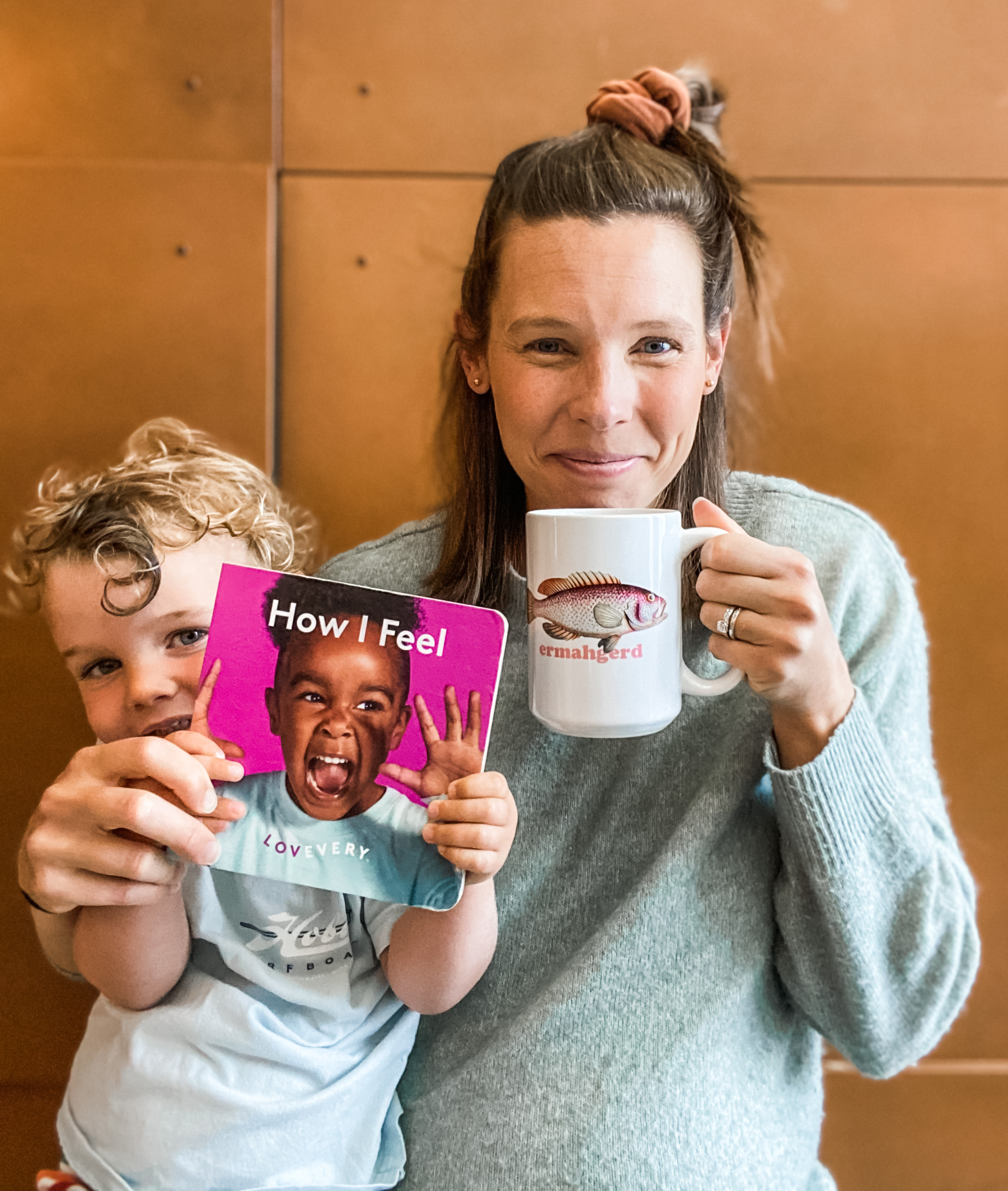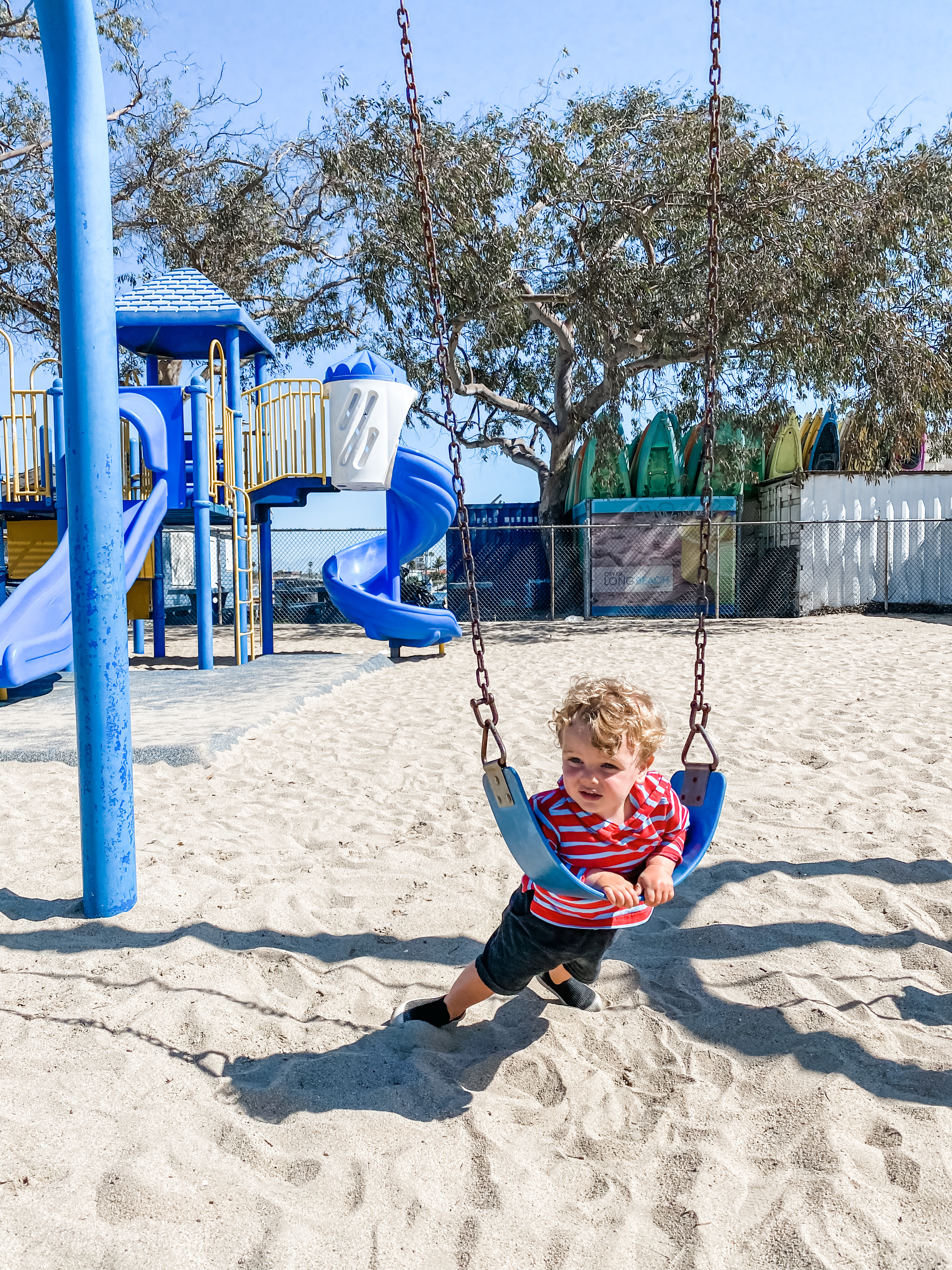I’ve been a little absent on social media lately. At first, I thought it was because I just didn’t have a lot to say. And then I realized that I had some things to say, but they weren’t necessarily things I wanted to say. Mostly, because I try to keep it positive on social media (or, at least, hopeful). That’s actually a big part of why I started my Instagram, and my blog, in the first place. If I write, talk and post about the good stuff (or, at least, try to bring humor to the bad stuff), it shifts my perspective a little–and helps encourage the more complicated, real-life me, to be a little more like the me I present online.
But lately, I haven’t really felt motivated to be my online self. Instead, I kind of just want to be my tired, cranky, watch YouTube videos on my phone all night self. And then this week, I got a little kick in the pants when my kids also decided that they were “over” trying to be their “best selves” too.

In my children, this transformation is not entirely unexpected. When the arrival of a new sibling is imminent, most kids act out at least a little. My kids, for example, have been a little shorter (and punchier) with each other, haven’t been sleeping as well, and have shed a lot more tears every time I leave the house, or attempt to drop them off at school.
And I’m beginning to realize that the reasons for their bad behavior may actually be pretty similar to the reasons behind my own. Like my kids, my patience is lacking, I get frustrated and overwhelmed more easily, and I’m not always the nicest partner. In short, I’m being a bit of a brat.
Tonight, for example, my husband and I went out to dinner while my mom babysat the kids. It was a real treat which, thanks to the pandemic, and my son’s prolonged sleep-training adventure, we haven’t done in a while. But about half-way through dinner, I found myself griping. I started going on and on about some of the anxieties I’ve been feeling lately. (And, important note, this is not the first time I have shared any of these thoughts or feelings with my husband.) I talked about the behaviors we’ve been noticing in our “big kids” lately, and how they’re probably only going to get worse after baby actually arrives. I talked about the overwhelming uncertainty of birth, and my fears surrounding labor, delivery, recovery, and the health of our new baby. I talked about the impossibility of finding reliable babysitters, whether we want visitors in the house, and whether or not our baby would sleep.
And then, jokingly, I told my husband that, maybe, if I just started saying, out loud, all the things I wanted, instead of what I feared, they would all magically come true.
“He will sleep through the night at 6 weeks!” I declared, and, I kid you not, the grandma at the table next to me snorted into her wine glass.
My husband laughed, but also replied with a somewhat sassy, “well, that’s pretty much how it’s worked out so far, isn’t it?”
And honestly, this stopped me in my tracks. My life hasn’t been perfect. I’ve been sick, lost friends, and gotten rejected by dream employers. I struggled with infertility, dealt with my kids’ health issues, and had stretches of time in my life where I felt “sad” for no good reason. I’ve had my heart broken, and some dreams crushed, but, on the whole, things have still worked out pretty well.
When I think about the big things I always wanted–a supportive partner, a family of my own, a home in a place where winter doesn’t exist–I almost can’t believe how lucky I am to actually have them. But, for some reason, I don’t wake up every morning and bask in the glory that is another sunny, California day, or immediately run to hug my loving husband, or extemporize about how miraculous it is that we created two, beautiful, mostly-human children.
Don’t get me wrong, I’m grateful for the life I am SO fortunate to live, and I take particular care to remind my my family, several times a day, how much I love them. I laugh, and hug, and snuggle my kids as often as they’ll let me, but I also spend a lot of time thinking, worrying, and talking about all the negative stuff in my life. And when I tell myself to cut it out, and “focus on the positive,” I sometimes feel even worse. So, last night, I did what any normal person would do, and asked Google: “why is positivity so hard for me?” While there are a lot of toxic comment threads out there in relation to this question, I also found a lovely, and helpful, article entitled, A Harvard psychologist explains why forcing positive thinking won’t make you happy.
While this article contained a lot of interesting points, a few of them resonated with me a lot. The first was Susan David’s (the aforementioned “Harvard psychologist”) assertion that positive thinking isn’t always a good thing. In fact, she said that positivity (or, at least, forced positivity) can actually manifest as a form of avoidance. Essentially, in saying that “everything is going to be OK,” you’re just pushing a very real problem aside, and, in refusing to deal with it appropriately, you may just end up causing yourself more trouble, or emotional turmoil, in the long run.

This is a mistake that I have definitely made at various points in my life. With my son’s sleep issues, for example, I told myself “it will work itself out,” for so long, that I was suddenly caught in a panic trap when, at 36 weeks pregnant, I had a two-year-old who was waking up 3+ times per night. My younger self also did this in relationships; telling myself a conflict wasn’t as bad as I thought it was, and that it would probably just “go away,” only to find that my avoidance of said actually-bad conflict made it significantly worse. While, in both of these cases, I justified my actions (or lack thereof) in the name of “positive thinking,” I was really just avoiding the inevitably difficult and uncomfortable action steps that may actually have helped solve the issues that were causing my negative feelings in the first place.
Additionally, David talked about the importance of having the wherewithal to feel all of your emotions, but not necessarily act on them. Instead, she said that we should try to reflect on our inherently transitory emotions through the lens of our more permanent belief and values systems. Only after doing so should we give ourselves permission to take action, or make a change, in relation to our feelings.
This one resonates with me a lot in the context of my current struggle: Right now, with a new baby due within the week, there’s a lot I can’t control. I don’t know when I’m going to give birth, or whether my baby will be healthy. I don’t know how my kids will react when I bring him home, or whether my babysitter will stick around for whatever chaos ensues after I do. I don’t know how bad the baby blues will be this time around, or whether the inevitability of a constantly messy house will drive me to the brink of a mental breakdown. So, unfortunately, there isn’t a lot that I can do to prepare for the future or, as David might say, proactively “act on,” and, thus, overcome, my feelings of anxiety and overwhelm. But that doesn’t mean that I have to sit in these fears and worries all the time. Even though I can’t necessarily solve most of these problems right now, I am allowed to let them go (for the time being at least).
And I think David would argue that I can do just that, by refocusing my attention on the values that matter to me in this moment. Once I’ve named those values, I can use them to guide the way that I respond to change and uncertainty, and the negativity those closely intertwined experiences bring out in me. (Which sounds a lot more productive than my usual nightly gripe.)
So, I made a list. A list of the values I would like to guide me through this time in my life (not to be confused with the values I have been embodying IRL these days). And here they are:
- I value resilience in the face of uncertainty, as well as the humility to ask for help. I want to live the truth that I can and will be able to handle whatever this next phase of life throws my way–even if “handling” it requires me to be vulnerable with others.
- I value an action-oriented mindset, and one that allows me to focus on solutions and moving forward, more than dwelling on what could have been.
- I value the negative feelings that motherhood brings, and my ability to feel, name and express them. I hope to be able to continue to process these emotions, without allowing that process to consume me.
- I value positive conversations, and hope to initiate more of them with my kids, friends, and family members.
- I value rest, because it clears the fog that oftentimes obscures the more beautiful parts of early motherhood.
In writing these values down, my hope is that I can use these values to navigate the way I react and respond in the weeks ahead. While there are sure to be difficult moments, and frustrating moments, and moments that bring me to my knees, I also know that I (and my “team”) are capable of facing them head-on, and letting the pain they may cause me find a place of validation and acknowledgment, without overwhelming the experience as a whole.
Because at the end of the day, pain, suffering, anxiety, and sadness are inevitable. But so is joy. And I think I’ll be much better at letting the latter into my life in a truly authentic way if I stop trying to pathologize, and berate myself over, my realistically necessary experience of the former.
Will I continue to complain to my husband, my friends, and my mom in the coming months? UNDOUBTEDLY! Will I have days where I feel like my life is a literal dumpster fire, and that there is no good in the world? For sure. But I also hope that I can use this transitional time in my life as an opportunity to learn to cope with the icky feelings in a way that is deeper, and more productive than just “staying positive.” And hopefully become less of a grump along the way.